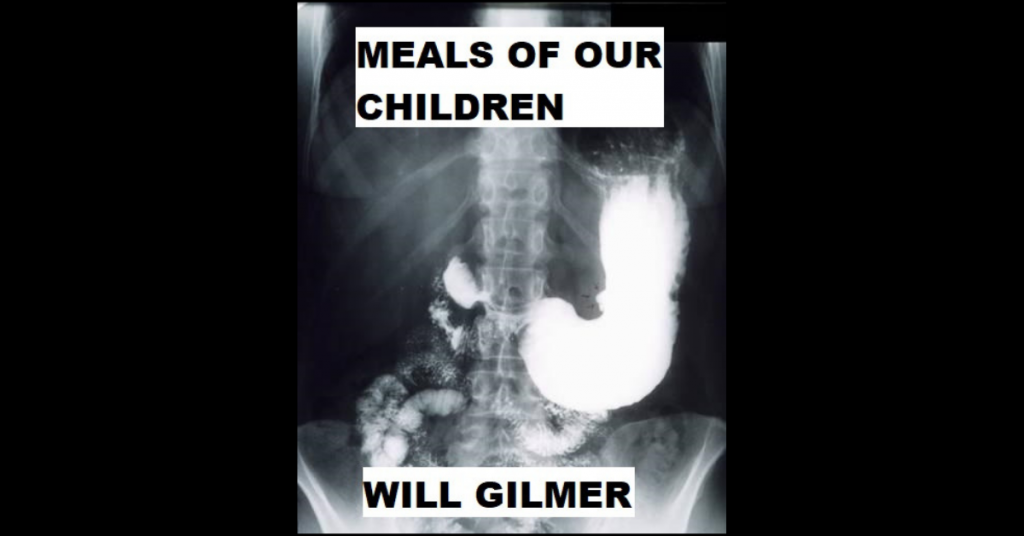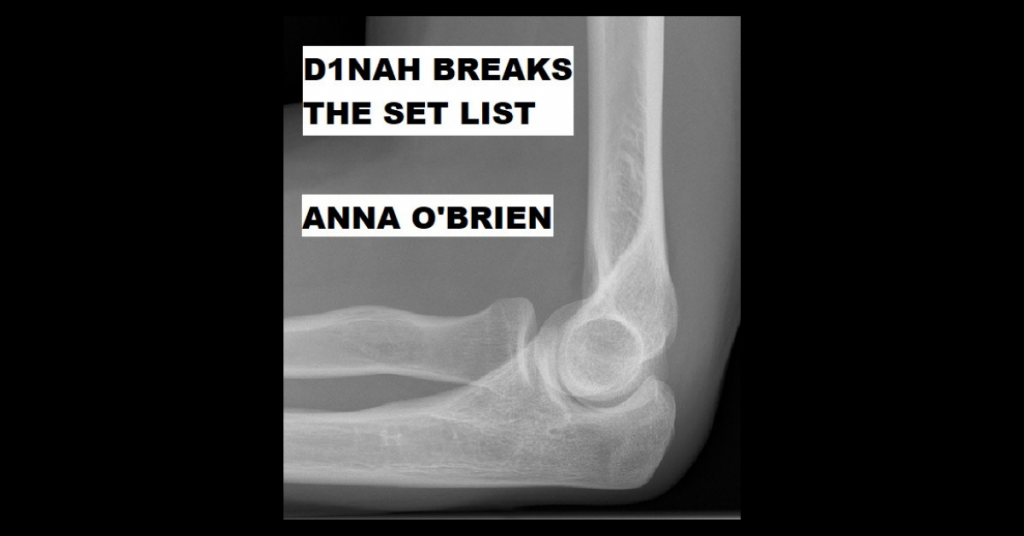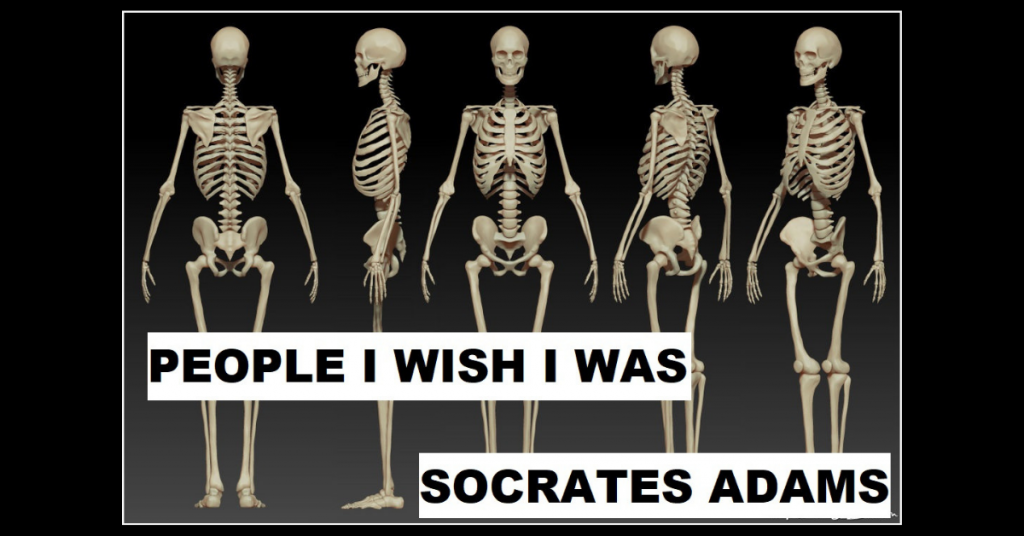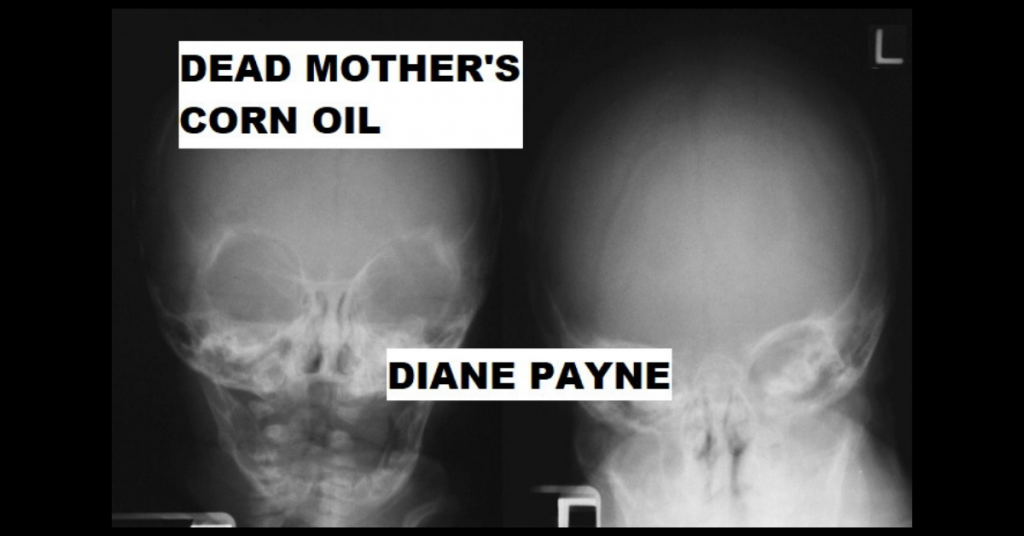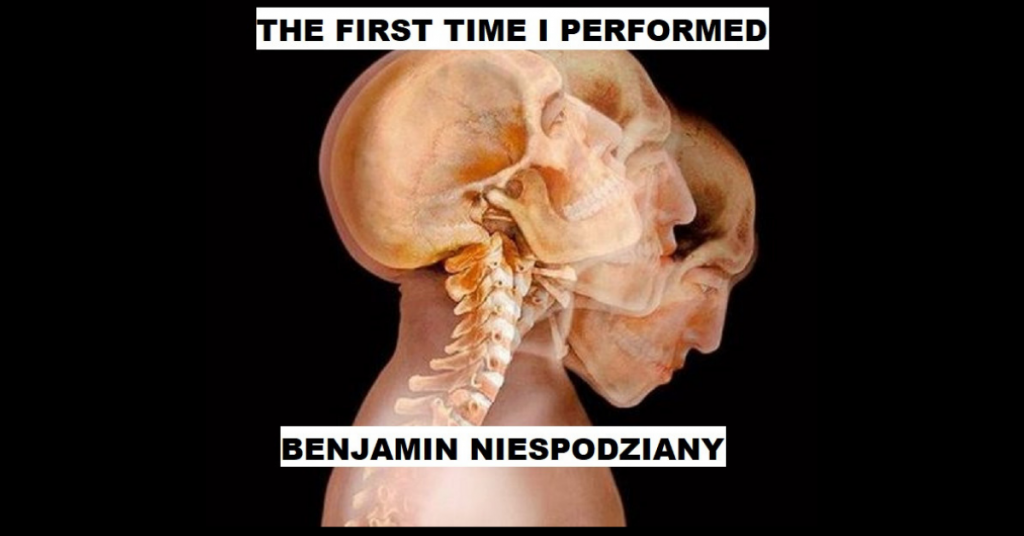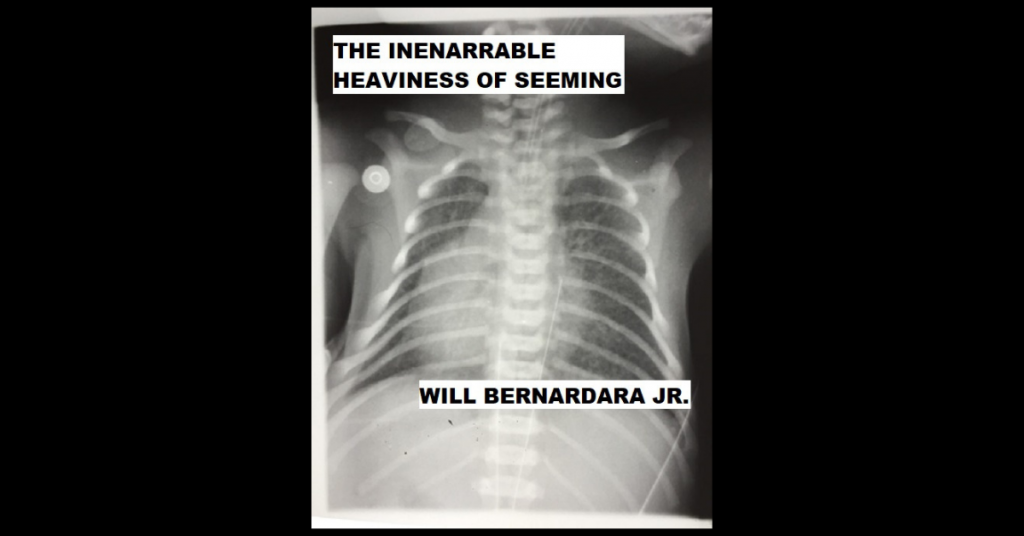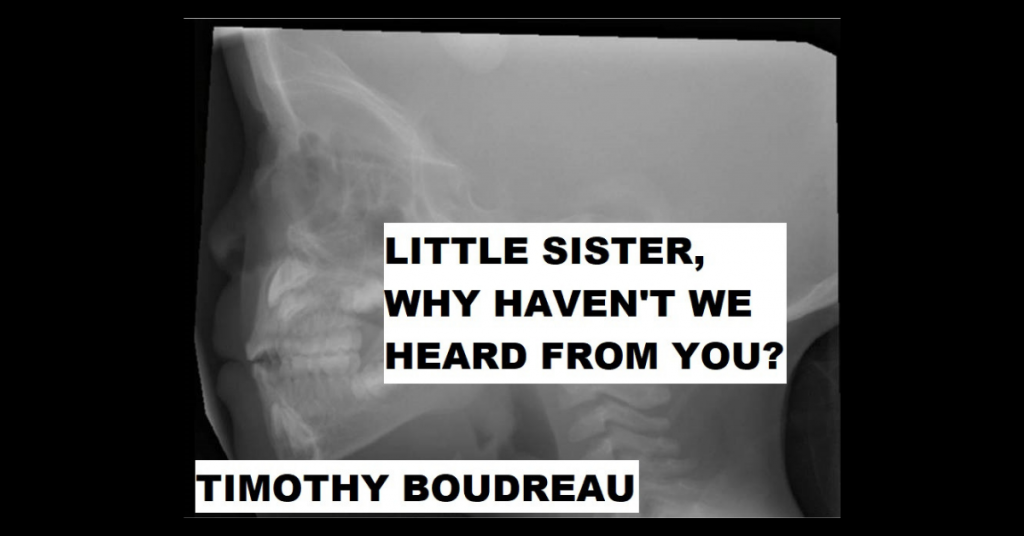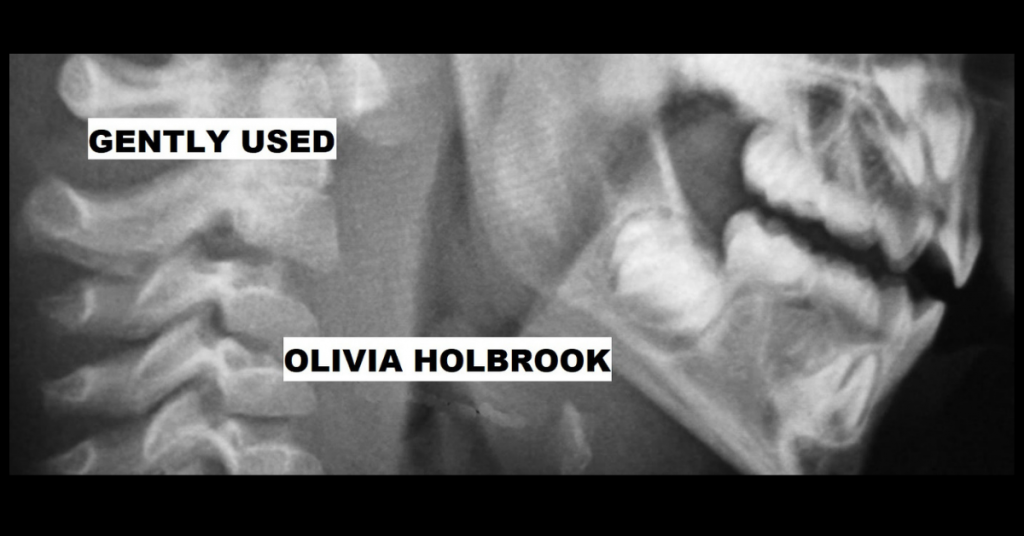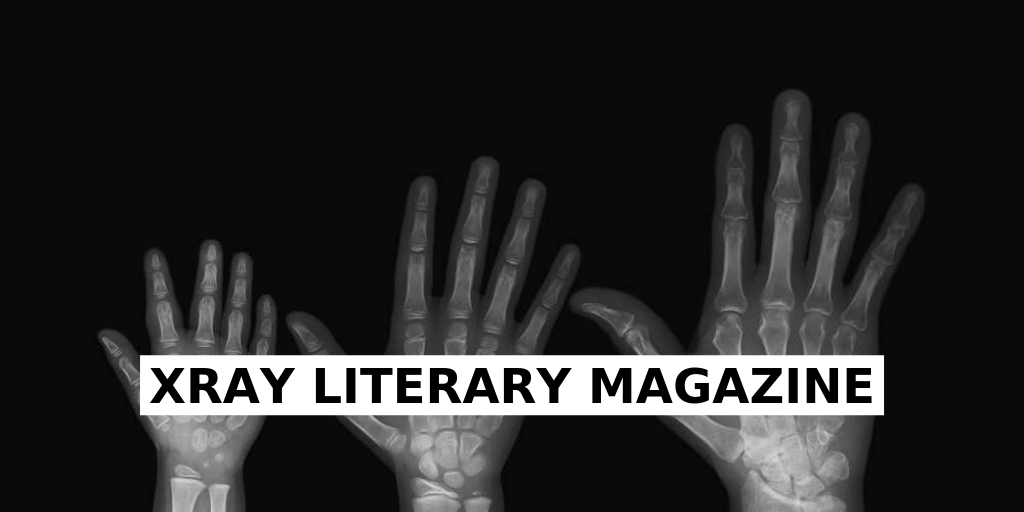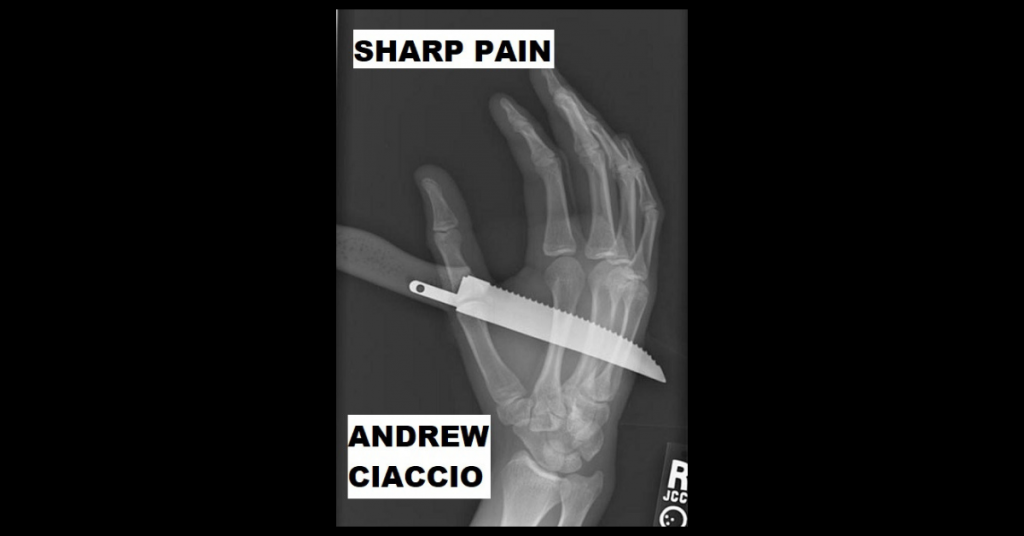“Perception of a state is not the state.”
M. John Harrison
A teetering bulb of dread and dream referred to – sometimes, by some – as Wes Boolean walks into a hardware store, his/its synapses scintillating with composite images of saw-teeth and conceptions of disjoining girl-parts.
(Interjection: The “bulb” of the foregone ‘graph isn’t a floating sci-fi brain. It [the bulb] is impounded in the standard ossein case of a bipedal primate “person” = Wes Boolean.
Thing is, the lump of gray mind-goo is the person; i.e., the “person” is a pattern ejaculated out of cerebral media, and so it’s [awkwardly] precise to state that a glob of neurons, glia, and organic miscellany walks into the hardware store.
[Moreover, it’d be less accurate to say, e.g., “Wes Boolean walks into the hardware store.”])
The hardware store, Doblhofer’s Drills ‘N Whatnot, enfolds mallets and monkey wrenches and fitted blades and omnifarious screws nails bolts nuts within a brick tetragon architecturally emblematic of Main Street, USA.
Wes, substrate of vortextual feedback (a.k.a. a “person” [which, tantalizingly, tellingly, probably comes from the Greek prosopa, which means mask]), browses Doblhofer’s dust(insect waste, dirt, husks)-diffused aisles, its timeworn bins and mummified 3-D, with the mien of a mako roving for a soft belly.
person = mask
self = feedback pattern
Posted by Anonymous on September 18, 2002 at 11:41:19:
Special orders don't upset us, we have any special cuts of meat of Teri Salsbury that your hungry for.She is primce USDA grade A meat and we are selling choice cuts of her for $1.59 per pound.We have Chuk Roast of Teri SalsburyWe have Ham Hocks of Teri Salsbury
We have breast fillet's of Teri SalsburyWe have prime rib's of Teri SalsburyWe have cunt steak of Teri SalsburyWe have shoulder rounds of Teri Salsbury
Come and get it special orders don't upset us.
(Interjection: Charles Crumb, artist R. Crumb’s older brother, never got around to reading Kant or Hegel.)
Perceptual impressions are notoriously, platitudinously labile… e.g., a building housing devices parts machines. For most, maybe, this is received sensorially as a structure that stores tools for, e.g., making a cabinet or fixing plumbing or crafting a lazy Susan. For some, like Wes, the same structure is interpreted as a den of murder implements for, e.g., slaking a bloodlust or hacking apart a lazy call girl named Susan.
Let A(x) be an arbitrary formula of the language of F with only one free variable. Then a sentence D can be mechanically constructed such that
F ⊢ D ↔ A(⌈D⌉).
It is a beautiful world.
Help you with somethin’?
Deo volente.
Pardon?
Nothing. Let’s see. I’m a burgeoning… Well. I need to, like, break something? And then uh… Well… Disassemble it?
Huh.
Yep.
- Right. Got it. So you’re lookin’ to do some demolition? For the home? And then some dismantling? For your house?
Close enough.
So this is home not commercial?
You know, rethinking it, I really just have one question.
Shoot.
Dismantling something… err… subsistent.
Pardon?
When cutting up something living or recently made dead –
Like a buck? There’s a Goose Peak outlet over in –
No, no. You have saws. Say for instance you wanted to dismember an antelope.
Dress it?
Sure.
Well.
Would you use an electric – like a buzzsaw or?
No.
Chainsaw?
Nothin’ like that. Hell. It’d fling bits of flesh and blood everygoddamnwhere. Christ.
Good! Good. See, this is the sort of wisdom I was angling for now.
A nice sharp knife and a hacksaw’s what you need.
Knife. Hacksaw.
Nothin’ electric. Christ, that’d make one helluva mess. The churning teeth you know would spit meat and blood back at ya.
Where’s the aisle with the hammers? I think I need to pick up a nice ball-peen hammer. In addition to.
For any statement A unprovable in a particular formal system F, there are, trivially, other formal systems in which A is provable (take A as an axiom). On the other hand, there is the extremely powerful standard axiom system of Zermelo-Fraenkel set theory (denoted as ZF, or, with the axiom of choice, ZFC), which is more than sufficient for the derivation of all ordinary mathematics. Now there are, by Gödel's first theorem, arithmetical truths that are not provable even in ZFC. Proving them would thus require a formal system that incorporates methods going beyond ZFC.
Wes plumbs the depths of the Internet. Tor Browser. Tails OS. Dark Web. He lurks electronically, fishing through the hidden digital murk for vile links and files containing repulsive material. He views heads shotgunned to gushing, sloppy fragments by ISIS weapons. He sees kittens suffocated and roommates dismembered. He watches as a feed reveals a child sadistically molested and abused in a bathtub.
And worse.
Posted by S.C on April 25, 2002 at 23:26:22:
I have frozen male members and human fat candles and soap my slave did a good job and I have a bit extra scraps to if you have a dog or like scraps.
Posted by Joe Chef on March 22, 2002 at 22:36:11:
I need young female longpigs for live roasts, live butcher, or if you want you can be beheaded or hung before butcher, or how ever you want it, the choice is yours. Applicant requirements are:Be willing!!!!Be between Ages 16-40(the younger the better).Be Physically fit.Be free of communicable deseases.Be able to realize and accept their own fate.Be able to compleatly disappear with no trace except to false locations.Be willing!!!!!
The street appears skewed and, due to some actinic phenomenon of rabid complexity, the streetlights stain the curb and stores and road a preternatural pink, like watery blood or light through a glass of Robitussin DM.
Night in all its protoplasmic enigma.
Wes meanders along Thrill Cherry Rise, the road a clotted municipal gut of liquor stores laundromats bowling alleys tattoo parlors etc. He emphasizes and exaggerates the aimlessness of his gait, to fool the maggots.
It is always possible to pass, purely mechanically, from an expression to its code number, and from a number to the corresponding expression.
Maggots are ubiquitous, pole to pole. They’re basically the not-Wes, the squirming pointless – coils of distorted info convinced they’re “people.” Maggots operate motor vehicles and bake casseroles for church potlucks; maggots rent silent movies and jerk off to streaming Yhivy porn; they spend (unconsciously) most of their days and nights trying to not be maggots. They are thralls to impressions, illusion-addicts, thrashing dumbly in the liquid fray of sentience. Maggots are paradoxes gone kinetic. They are, most categorically, rapacious with a demand and need nature cannot sate.
But, Wes concludes, halting the introspective litany of maggoty definitions, coherence is hostile to vision. So fuck it, if not entirely at least in part.
For any 1-consistent axiomatizable formal system F there are Diophantine equations which have no solutions but cannot be proved in F to have no solutions.
Time shreds itself to quantal bits of chronofractals; inwardly, all becomes a bleeding echo chamber of languor. Life is spawned in delirium and promptly crushed inert by sheer lethargy.
Weltschmerz informs everything.
Murder stimulates.
Wes reads prodigiously, the moon’s bone-colored light glimmering in the sprawl of black sky. He focuses, letting the text sink into himself, the words of On Formally Undecidable Propositions of Principia Mathematica and Related Systems amalgamating with Vasili Ivanovich Komaroff’s 33 victims. Slashed throats and bludgeoned craniums; for any set of axioms and inference rules proposed to encapsulate mathematics, either the system must be inconsistent, or there must in fact be some truths of mathematics which could not be deduced from them.
A surge of compulsion, a jolt to see something horrible; brainwave entrainment, the practice of entraining one's brainwaves to a desired frequency. The frequency of death, of maiming, of illusions and lies pouring out, of blood and gore. Wes sweeps the numbers book aside and searches the Net for war atrocities.
He watches Liberian kids in bootleg 2Pac T-shirts cut each other’s hearts out and devour them. He looks at streaming video of machete fights in the Dominican Republic. Rapists beaten with pipes and set on fire by villagers. Crush videos – high heels and fur and small animals squealing.
What differentiates Wes from the larvae: Wes allowed his mind to turn in on itself, utterly. Wes looks around and sees not “humans” but carbon-based snarls. The system of configuration had retroflexed somewhere in the phylogenic trajection. This “turning back” educed tangled webworks of repercussive data that believe they’re “selves” and “individuals” and “identities” and bipolar comptrollers and suicidegirls and Nabokovian novelists and dentists with erectile-dysfunction issues and Spinell-esque pederasts with suburban Oedipal complexes and Jews for Jesus and feminists with erotic cyborg fantasies and Abel Ferrara and Tom Jones and Alexis Dziena and Nixon and Wesley Snipes and Lord Byron and Michael Dudikoff and Shadoe Stevens and Tony Robbins and Ortho Stice and Isidore-Lucien Ducasse and Morarji Desai and Coffin Joe and your mom and Gorbachev and Robert Gordon Orr and Brinke Stevens and Levi-Strauss and this writer and Nicola Sacco and Maurice Sendak and Gilbert Gottfried and whoever owned Orlando’s Mystery Fun House and Zapffe and Russell Edson and Ariel Rebel and MC Ride and Osamu Shimomura and E. LaFave and Vigny and Andrei Tarkovsky and Peter Weller and Derrida and Xenophanes and Mussolini and Emile Zola and Eliphas Levi and Peter Scully and GG Allin and YOU.
Snarls, all.
Where ⌈A⌉ is a name of a sentence of the object language, and B its translation in the metalanguage. If the metalanguage is identical with the object language, or is an extension of the object language, B is simply A itself, and the T-equivalences are of the form:
True(⌈A⌉) ↔ A.
At the risk of coming off rhapsodic, I’ll say you looked like an inebriated angel stumbling along the sidewalk just now.
I’m not drunk.
No?
Bath salts. And gorilla glue. Or sour diesel. One of the two.
Sure.
I’m fraying. Eroding.
I’m Wes.
April. Not an angel, unfortunately.
Fortunate for me though. Accounts of encountering angels – ancient accounts – describe it as a terrifying experience. Sublimity’s close to horror, you know.
So what are you into?
Skeletons of DMT and GenX. Bacteriophage 0X174. And orthogonal shadows.
Ha. You’re funny.
In Rome around 1451 AD, a woman, according to more than one written record, was enthralled by a demon. Lilith. The succubus and queen of crib death. The story goes she woke up one morning and knew the demon was inside her. So she swaddled her baby and took it to a bridge, then she threw the infant over the edge into the canal. The instant she dropped the child, the spell broke. The demon fled. And this is what makes the story so horrific: the second she let go of her baby the possession ceased, and she screamed and wailed and killed herself later that same day. Opened her wrists. Have you ever felt possessed, April?
April Brighton has buttery black hair dyed blue in swaths. Her face is model-pretty and her body same. She looks like a garbage angel churned out by some grunge chic fabricator. She wears a Minor Threat T-shirt and a thrift-store skirt, combat boots and fishnets. She exhibits a lot of silver jewelry, rings, a platinum (fake) barbed-wire-necklace thing, and a pierced nostril, the silver stud so tiny it’s barely visible, just a pinhead twinkle in the skin there. April is easygoing and fun and relaxed. But April isn’t a human being. April is just noise adorned in fabric and metal. A maggot. And what Wes does to this thing that calls itself April is, he makes a mess of her/it using various tools bought from Doblhofer’s.
Posted by charlotte on October 10, 2001 at 11:17:11:
I only just found this site, after being a regualar user of the IRC channel for ages.I love the format, I could be tempted to apply to be livestock myself, as long as I get to be live roasted :)Just wanted to post a post anyway XD
Looking for anyone that would literally like to cut my butt off for eating, I would also like to have my feet and legs cut off, I have always wanted to be eaten since I was a kid and now I'm ready, I'm 27 y.o, nice looking male,very clean d/d free, drk. blonde hair, green eyes, 6ft,200lbs. I would like to be gutted and have a spit put into my anus going through my mouth, I'm looking for serious replies only so no fantasies.I will send you a pix.of me when you respond, you can e-mail me at: keen_31@yahoo.com
Keith
There exists y such that y is the Gödel number of a proof of the formula with Gödel number x, AND there does not exist z smaller than y such that z is the Gödel number of a proof the negation of the formula with Gödel number x.
More formally:
Prov*(x) =def ∃y[PrfF(y, x) ∧ ∀z < y(¬PrfF(z, neg(x)))],
where PrfF(y, x) is the more standard proof relation discussed earlier.
(Interjection: By the time Wes Boolean was five years old, he’d already displayed, chronically, two of the three behavioral characteristics outlined in the Macdonald triad. I.e., he set fires constantly and tortured small mammals purchased from pet stores. [Guinea pigs, mostly.] These behaviors were habitual compulsions lacking any sort of credo or rationalization.)
April had her shirt off – no bra – and just as she was about to remove her skirt Wes whacked her with the hammer. An awkward, glancing blow that stunned and shocked, blood slithering down her neck from the gash in her scalp – but nothing potentially fatal. April started screaming and Wes began screaming too, mimicking her, matching her volume. He struck her twice more with the hammer, this time with the claw end, and the second impact caused the split-and-curved side to break through skin and skull and lodge there, stuck in April’s forehead like a new and extreme piece of facial jewelry. Fascinated, Wes stumbled back and admired her: she was still alive and conscious, a hammer stuck in her forehead, some homemade unicorn, a brutal chimera, her shrieking now degraded into a kind of stutter-scream. Wes wished he had an endoscopic gyno-cam to film the wounds in slow-mo, rip off the zygomatic process to reveal the wonders inside: the symphony of neurological dissonance, landscapes of gum tissue and deep muscle geographies that would resemble something Other; optical deformation, maybe, enhanced by software-based filters or Rutt/Etra, that would show in April’s glitching gray matrices the hexagon atop Saturn, observed by ritual and satellite alike. Sharp force trauma to the temporal region: prevailing cartilage, scant bone, composed like a Bach translation of a brain-pogrom only visual, not orchestral.
Wes tried to wrench the hammer loose from April’s head; her eyes had rolled back in their sockets and twitched repulsively. The hammer wouldn’t detach. Wes as not-Arthur, April’s head as the fabled stone.
Rapturous thoughts and equations blitzed through Wes’s mind-stew: rend the “person,” the body that generates the “persona waves,” and by doing so rend the illusions – the noise of seeming cuts out for fucking good. The inenarrable heaviness of seeming.
For any consistent system F within which a certain amount of elementary arithmetic can be carried out, the consistency of F cannot be proved in F itself.
Do this enough times and you’ll transcend the status of maggot – maybe, perhaps, could be, right?
NON SERVIAM
